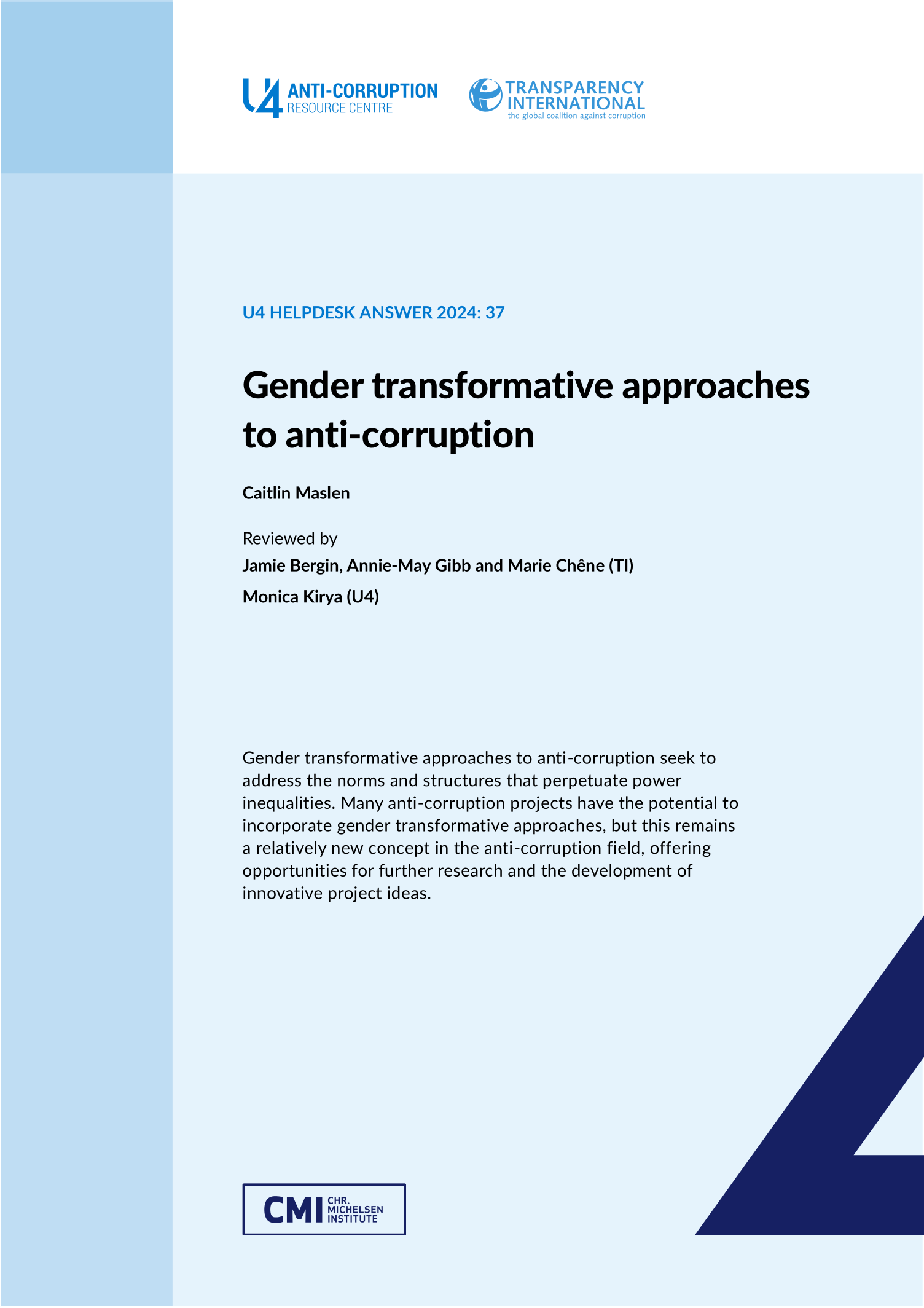Main points
- Gender transformative approaches to anti-corruption address the underlying social norms and structures that perpetuate gender inequality and power imbalances
- These could be applied in several areas of anti-corruption, such as political participation, access to public services, land corruption, and others. The central notion behind whether these are gender transformative is if the interventions also address social norms and structures. For instance, a public awareness campaign could challenge the social acceptance of bribery as well as the power imbalances that might make women more vulnerable to petty corruption
- The broader literature on social norms change is also pertinent to gender transformative approaches and can be applied within the field of anti-corruption
- However, gender transformative approaches are not as developed in the anti-corruption field as in other development sectors. Therefore, the anti-corruption sector could learn from others such as health, food security and education, which have employed gender transformative approaches to a much greater extent. This Helpdesk Answer draws lessons from gender transformative approaches in those areas



